Berlin based CoWomen is a community club and a coworking space for “driven women”. The space focuses on women on the rise. CoWomen, explain the founders, supports those “women on the rise” to achieve their goals with a workspace with beautiful atmosphere, experts and masterclasses to develop professional and personal skills and community events to find inspiration for the big goals. Hannah Dahl and Sara-Marie Wiechmann are two of the three co-founders.
Hello Hannah and Sara. Can you introduce the CoWomen project you run?
We aim at offering the perfect membership for women to build their careers and lives they love.
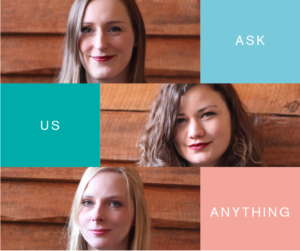
Our mission is to connect rising women to help them unleash their potential. We firmly believe in the positive effect of strengthening women in business and the enormous impact they can have on society and the economy. Everyone profits from more successfully working women! And because building networks is the deciding factor to achieve this, it’s what we focus on at CoWomen.
Hannah’s story is the birth of the CoWomen idea: When my first son was three months old I started to work again as a software and process management consultant. And while standing in the client’s bathroom pumping milk and being on the phone with colleagues, I started to realise that we need new work spaces. Spaces with other functionalities but also other messages and other purpose. A couple of months later I thought about starting a coworking space with child care but I was happy to see that we already have amazing spaces in Berlin that provide this service and childcare was not the only pain we wanted to solve with CoWomen. After networking in female networks for a while, it really hit me. There are so many topics we share and work on as women and being amongst women is so much fun – what an energy! An idea was born. Since then, my idea has grown into a place and space that offers everything a working woman needs.
I was not alone on my journey. When I reached out for more women to join CoWomen, I didn’t have to look too far. Sara has been a colleague and work friend of mine in our former company in software consultancy for a while and she got on board really quickly.
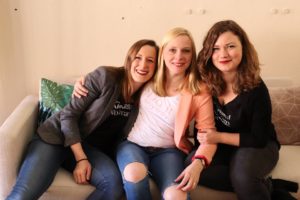 Sara:
Sara:
I have a passion for digitalisation, for change and modern feminism. I lived these topics all my life and in my studies in Cologne and London. Transitioning into our classic working world – and we were working in public management which is also culturally impacted and not known for fast innovation processes – literally meant a culture shock for me. So, I analysed this new culture I was surrounded by and tried to master it and what I found was that the women in my company were driven and going big. They were all more or less in my age group and career stage. We were heard and promoted and needed to take on responsibility. But, there were no female role models for us.
So I left the company that I liked and started my journeys with Hannah to bring those great women together and understand how we can change the classic working world we experienced.
We were heard and promoted and needed to take on responsibility. But, there were no female role models for us.
Kat is the third woman in our founding team. She is a globetrotter always passionate about amplifying women’s voices. Having gained ample marketing experience in NYC, London, and Berlin, she can create clear and human-friendly messaging and content. That’s why she is developing and executing our marketing strategy to spread the word about the amazing connections happening every day at CoWomen.
We three founders work with a lot of heart and vision to make it possible for the women to achieve what will bring them forward, whether as a community or in their personal and professional development.
Our “Code of CoWomen” makes it clear which values and goals we pursue as a community. The code also encourages you to be yourself in a professional space and to feel comfortable with what you are doing. We live by what we expect from other work environments and employers.
Why did you feel the need for a coworking for “women only” space?
Because it’s so much fun! Really, the energy that is within a women only space is unbelievable. But mainly because we experience the need to create a space that serves a specific purpose. We want to change the working world and coworking spaces are the perfect place to do so. They offer an alternative working atmosphere and the chance to talk to like minded people to make change happen together. In our case this purpose is creating a better working world for women and strengthen them so we all profit from more working women. We were networking for over a year, we see the trend of rising female networks meeting in cafes sporadically. They need a physical space to make a difference.
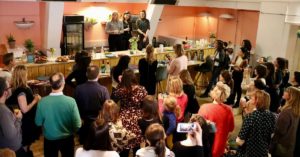
And in addition, we see and experienced the pain points of women in the business world so we know that these networks are more than necessary. We exchange profoundly, openly and honestly and we meet the same challenges in life. For example, we often deal with topics such as the different ways men and women communicate, leadership styles, further education, work-life integration, the compatibility of work and family, an attentive life and often also finding or creating meaningful work. So what happens in the CoWomen space is not picking on the pain points. It is striving for big dreams and big change. It’s a very special energy when there are only women in the room.
We see and experienced the pain points of women in the business world so we know that these networks are more than necessary. (…) The CoWomen space is not picking on the pain points. It is striving for big dreams and big change.
And even if we don’t call it that, the space is a kind of safe environment where women can leave their comfort zone and try out new things. Both in the role of a participant and of a workshop leader. And you simply feel more comfortable and courageous among women. Some women need the specific exchange, some women find their customers in our community and some are merely happy not to be in the minority for once. Especially women who work in areas that are currently dominated by men, such as in the tech industry or the start-up world. It is a special experience to come together with women who are just as ambitious and determined. That gives new energy for the own everyday life.
Some women need the specific exchange, some women find their customers in our community and some are merely happy not to be in the minority for once.
We are at a time when the society promote diversity and inclusivity. Isn’t there a risk to be perceived as creating a new kind of exclusivity?
Diversity and inclusivity are a result that desperately needs to be achieved in a lot of spaces in society, yes. Especially in spaces that mean power and designing the lives as we live them. But how do you achieve a good mix in managing and powerful roles? If there is a misbalance the minority needs to get the focus. Or as Tarana Burke (Meetoo movement) would say: “It’s not about exclusion. It’s about managing the inclusion, because otherwise they will not be pulled in the centre.” As CoWomen, we focus on including the demand of the female workforce into the classic working world. And also more females. We understand that the lack of female role models is one dominant factor in some areas and we understand that exchange amongst women on professional topics is not possible in every work environment. Therefore, we focus on women.
Without entering into the discussion about where different behaviours come from, which socialisations predominate or what is biologically predetermined, we find that women often act, prioritise and decide differently than men. 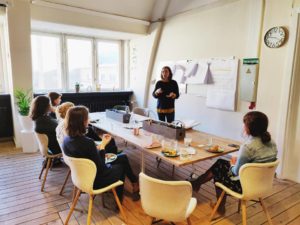 Of course, we are all individuals, so – as we have learned in some of our workshops – we should rather say “typically female” action deviates. However, it is guided by values that have long been demanded of a modern working world and modern leadership. Authenticity, flexibility, commitment to one’s own values, inclusion and collaboration, but at the same time independence, empowerment and adaptability. These and many other behaviours are urgently needed in a complex, individualising society and in complex markets, so we are here to push them forward. By the way, Brigitte Zypries is also one of our fans. CoWomen makes women’s lives easier and gives them the network they need to reach the top! CoWomen is more than just a coworking space. Our vision is to connect and support the next generation of female leaders. We connect them with each other as well as mentors and offer them the perfect work environment to realise their dreams. We want to feel comfortable in the rooms we work in, almost like at home.
Of course, we are all individuals, so – as we have learned in some of our workshops – we should rather say “typically female” action deviates. However, it is guided by values that have long been demanded of a modern working world and modern leadership. Authenticity, flexibility, commitment to one’s own values, inclusion and collaboration, but at the same time independence, empowerment and adaptability. These and many other behaviours are urgently needed in a complex, individualising society and in complex markets, so we are here to push them forward. By the way, Brigitte Zypries is also one of our fans. CoWomen makes women’s lives easier and gives them the network they need to reach the top! CoWomen is more than just a coworking space. Our vision is to connect and support the next generation of female leaders. We connect them with each other as well as mentors and offer them the perfect work environment to realise their dreams. We want to feel comfortable in the rooms we work in, almost like at home.
CoWomen is more than just a coworking space. Our vision is to connect and support the next generation of female leaders.
Is there a mainstream profile of member within your community?
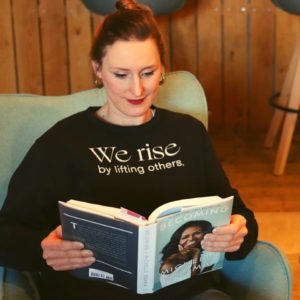
Women with a certain “drive” who don’t always know what they want, but have the energy and the wish to find out and pursue it. Women who want to create value for the economy and above all for society. Women who know the meaning of networks and want to live the values of our code. Our members come from different industries and have all kinds of professional situations.They mirror the typical working woman in Germany, but in regards to the aspects above. They need to want more and develop together. As you can see, we are not strictly depending on women who work with us in the space every day, but we have members who join us for an occasional work day and a lot of events after their work day is done. The majority of women at the moment are freelancers which is also a cultural phenomenon in Germany. We love that they come to our space to develop their business, their projects and themselves.
The US have been among the first to see the emergence of “for women only” coworking space: would you say the situation is similar in Europe?
We are not sure that we have an answer to comparing the American culture to a European culture regarding female coworking spaces. From what we have seen, the call for feminism and female-only spaces in Europe is not as “loud” as in the US. In Sweden and London, there are “female focused” spaces: Spaces created by women but not only for women. We are the second space that opened for women only in Europe and we are going to open many more. There are amazing spaces for women in the US that we don’t usually read about in Germany or Europe. And they are in parts also our role models: empowering women by bringing them together and catering their needs. Without bashing men. And Kat already visited some on her last trip to the States. So we think we share our goals, but we are living our European culture as well. But most important is: we are always open for cooperation. Together we are stronger.
We are the second space that opened for women only in Europe and we are going to open many more.
Would you say the struggle for more gender balance is similar in Europe than in other places?
Gender balance is highly culturally determined and different in every society. What we are aiming for is a switch of mindset and therefore we have to understand it first. What we know is, there is huge potential in Europe and in Germany to improve leadership and work by including more females. So similar, we don’t know, but there are a lot of numbers, that show us, that balance is missing. It is hard however to compare numbers.  We need to ask the right questions first. And this is where coworking can help as it creates the space to get into topics of imbalance more deeply with women who are aspiring to reach the top. So they ask the right questions to themselves already. And we all see the movement of women working together on creating this big momentum and movement towards a great female vision. In addition to that, Coworking spaces themselves are a manifestation of the problem of imbalance in the modern working world. There are women missing in a lot of coworking spaces too. In the German-speaking coworking scene we notice a big shift towards this topic. Coworkers and owners are very aware of the low number of women in their spaces, on diversity topics or are even interested in opening more female spaces.
We need to ask the right questions first. And this is where coworking can help as it creates the space to get into topics of imbalance more deeply with women who are aspiring to reach the top. So they ask the right questions to themselves already. And we all see the movement of women working together on creating this big momentum and movement towards a great female vision. In addition to that, Coworking spaces themselves are a manifestation of the problem of imbalance in the modern working world. There are women missing in a lot of coworking spaces too. In the German-speaking coworking scene we notice a big shift towards this topic. Coworkers and owners are very aware of the low number of women in their spaces, on diversity topics or are even interested in opening more female spaces.
Our vision is to create an inspiring place where aspiring women can come together to change the world of work, even the world. Together we are stronger. We care a lot about building our shared vision sustainably. In Germany, coworking spaces for women are new, even though almost everyone in Berlin already knows about “coworking”. Nevertheless, for us it is as important to take our knowledge and experiences and support organisations and companies to bring more diversity into their corporate culture. We are all faced with challenges and can master them if we take the needs of our colleagues into account and transform the world of work accordingly.
There are some clichés that a coworking space for women will naturally include a “child care” service. Your project is definitely not about that.
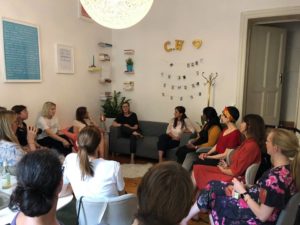 Hannah:
Hannah:
I usually answer that there aren’t men at the space so who should take care of the kids?! Haha. But yes, this is an ambiguous topic for us. And in a very early stage as described above, we actually thought about a space that includes child care services as this was my initial impulse. But it’s not our focus now. We are learning through our work at CoWomen that family planning is (still) a classic female issue but is very far from being the only one that keeps us from taking on more responsibility in the working world. So there is a 100%-acceptance policy on family topics and the need to bring your child with you sometimes. I take my Babyboy to any (business) meeting that I have. But at the space, we focus on working and changing the working world. Our moms also do. We work on creating a narrative to change the system. It is much more than just creating places that include child care services to ease the pain of not having time to work. It is about showing the world that there are things that need to be done, women or men, with or without kids.
What are Co-Women’s plans for the coming two and five years?

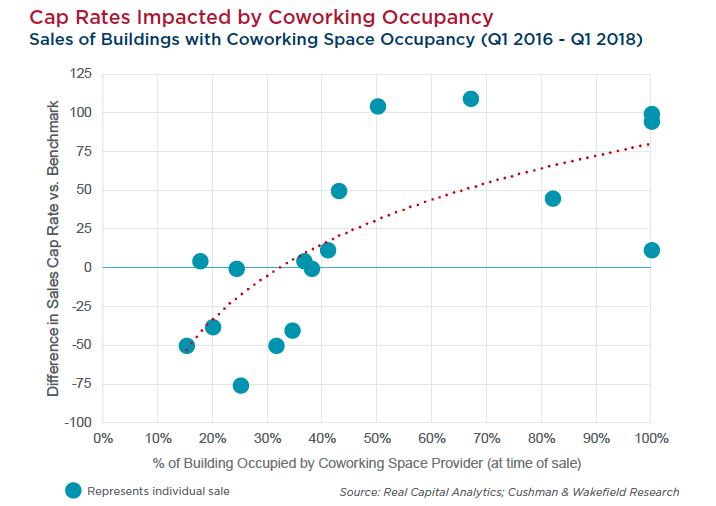
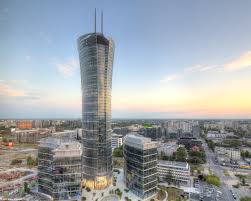
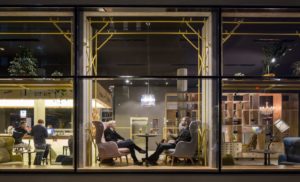
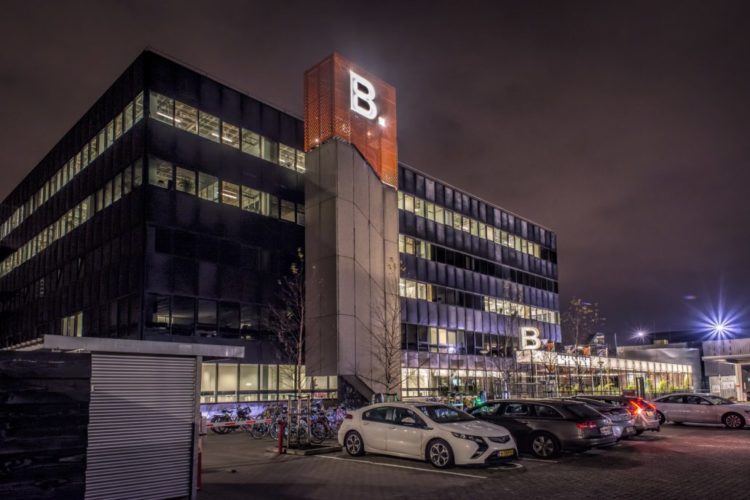

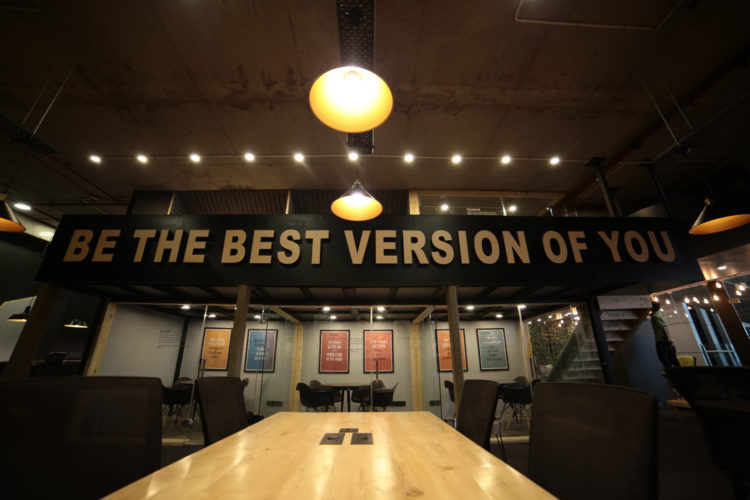
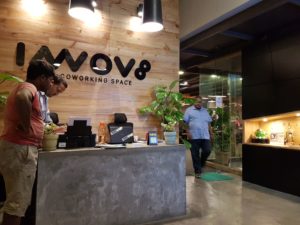

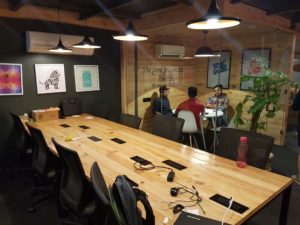 Over the last six years, OYO has invested heavily in building key competencies, where our operational expertise in supply acquisition and management, renovation, operations, revenue management, and distribution, through both offline and online channels, that has helped the company gain significant momentum, and emerge as the most preferred brand in the budget to mid-segment hospitality space in several markets like India and China.
Over the last six years, OYO has invested heavily in building key competencies, where our operational expertise in supply acquisition and management, renovation, operations, revenue management, and distribution, through both offline and online channels, that has helped the company gain significant momentum, and emerge as the most preferred brand in the budget to mid-segment hospitality space in several markets like India and China.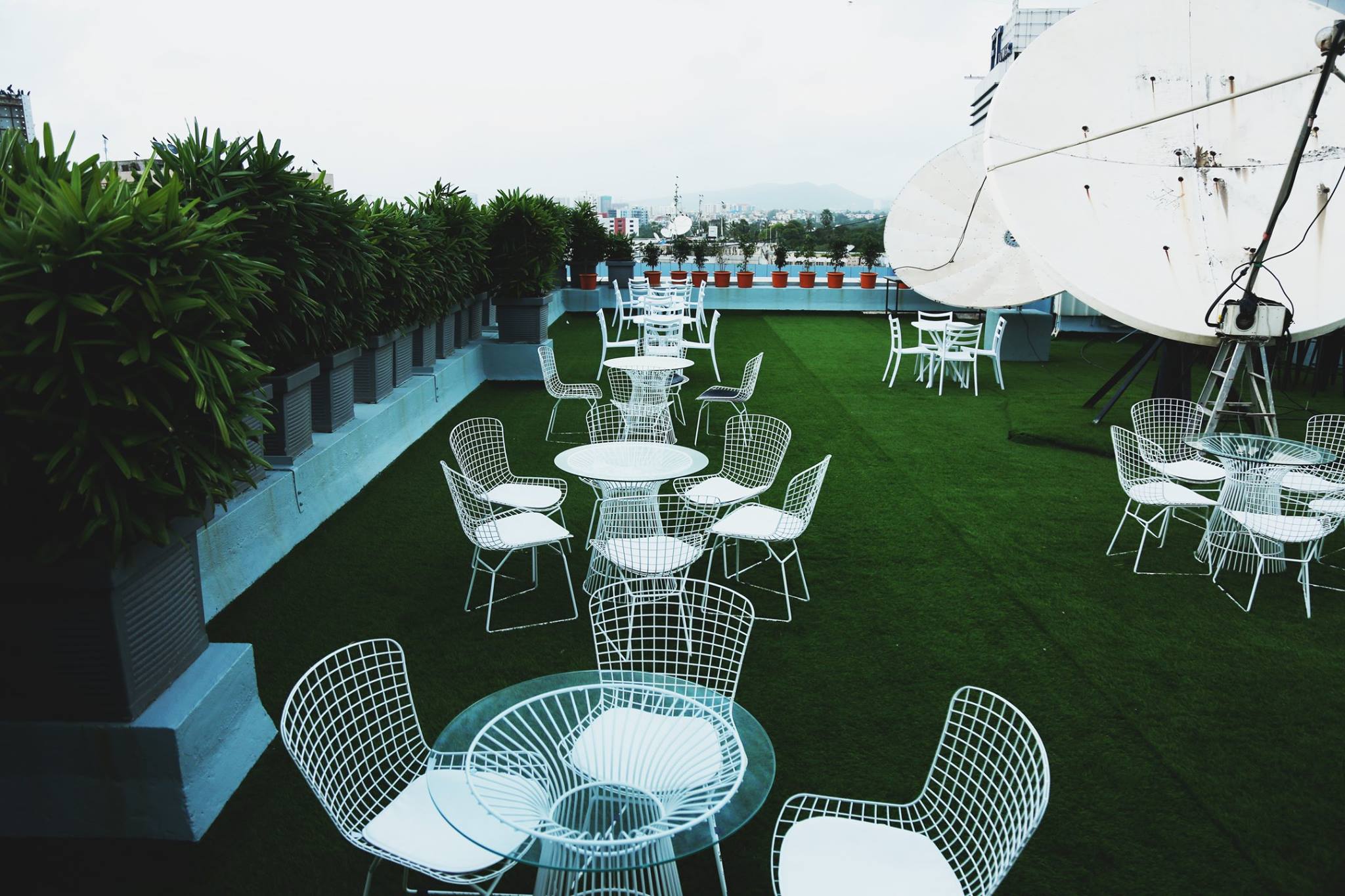 More than desks, chairs, coffee and office infrastructure, workspaces should provide the environment and support to make every company and coworkers grow and do their best work. Our community and value-added services make Innov8 a second home; creating an ethos of happiness at the workplace.
More than desks, chairs, coffee and office infrastructure, workspaces should provide the environment and support to make every company and coworkers grow and do their best work. Our community and value-added services make Innov8 a second home; creating an ethos of happiness at the workplace.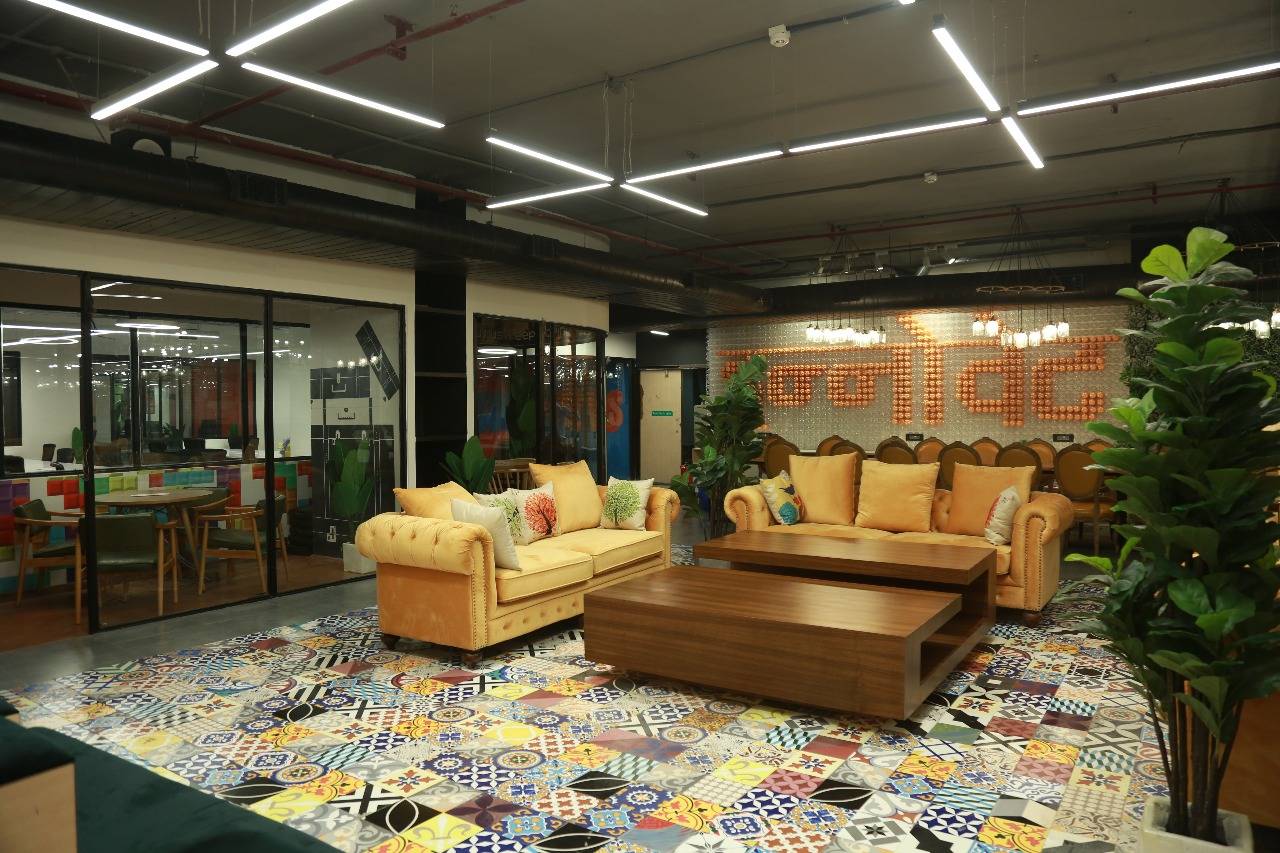
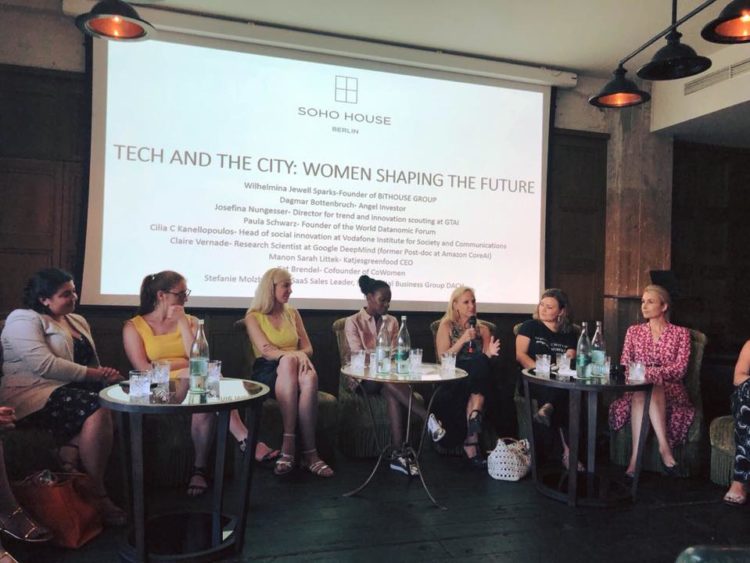

 Sara:
Sara: 
 Of course, we are all individuals, so – as we have learned in some of our workshops – we should rather say “typically female” action deviates. However, it is guided by values that have long been demanded of a modern working world and modern leadership. Authenticity, flexibility, commitment to one’s own values, inclusion and collaboration, but at the same time independence, empowerment and adaptability. These and many other behaviours are urgently needed in a complex, individualising society and in complex markets, so we are here to push them forward. By the way,
Of course, we are all individuals, so – as we have learned in some of our workshops – we should rather say “typically female” action deviates. However, it is guided by values that have long been demanded of a modern working world and modern leadership. Authenticity, flexibility, commitment to one’s own values, inclusion and collaboration, but at the same time independence, empowerment and adaptability. These and many other behaviours are urgently needed in a complex, individualising society and in complex markets, so we are here to push them forward. By the way, 
 We need to ask the right questions first. And this is where coworking can help as it creates the space to get into topics of imbalance more deeply with women who are aspiring to reach the top. So they ask the right questions to themselves already. And we all see the movement of women working together on creating this big momentum and movement towards a great female vision. In addition to that, Coworking spaces themselves are a manifestation of the problem of imbalance in the modern working world. There are women missing in a lot of coworking spaces too. In the German-speaking coworking scene we notice a big shift towards this topic. Coworkers and owners are very aware of the low number of women in their spaces, on diversity topics or are even interested in opening more female spaces.
We need to ask the right questions first. And this is where coworking can help as it creates the space to get into topics of imbalance more deeply with women who are aspiring to reach the top. So they ask the right questions to themselves already. And we all see the movement of women working together on creating this big momentum and movement towards a great female vision. In addition to that, Coworking spaces themselves are a manifestation of the problem of imbalance in the modern working world. There are women missing in a lot of coworking spaces too. In the German-speaking coworking scene we notice a big shift towards this topic. Coworkers and owners are very aware of the low number of women in their spaces, on diversity topics or are even interested in opening more female spaces. Hannah:
Hannah: 
Recent Comments